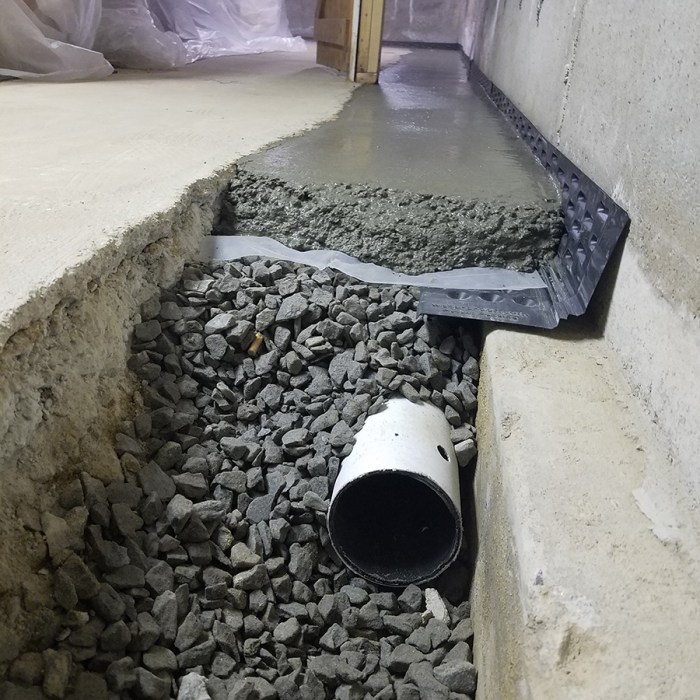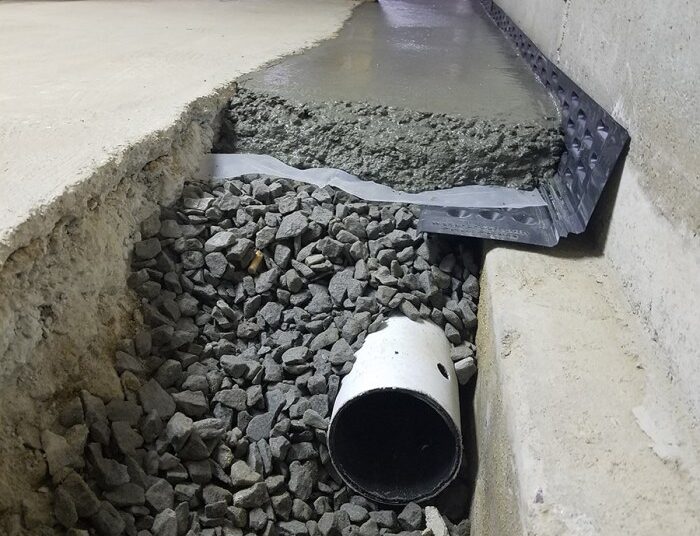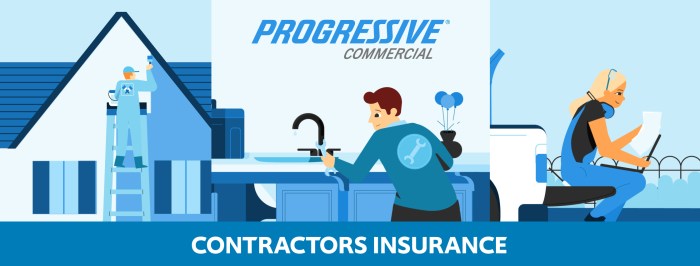Exploring the realm of basement waterproofing companies unveils a realm of essential knowledge for homeowners. From the importance of waterproofing to the common techniques used, this guide delves into the intricacies of keeping your basement dry and protected.
As we navigate through the details, you'll gain insights into the signs of basement water problems and how to choose the right waterproofing company to safeguard your home. Let's dive in!
Importance of Waterproofing Basements

Basement waterproofing is a crucial step for homeowners to protect their property from water damage and ensure a safe living environment. Without proper waterproofing, basements are at risk of water infiltration, which can lead to a range of issues that may be costly to repair.
Risks of Not Waterproofing Basements
- 1. Mold and Mildew Growth: Excess moisture in basements creates a breeding ground for mold and mildew, which can pose health risks to occupants.
- 2. Structural Damage: Water seepage can weaken the foundation of the house, leading to cracks, shifting, and other structural issues.
- 3. Damage to Belongings: Water infiltration can damage personal belongings stored in the basement, such as furniture, electronics, and documents.
- 4. Decreased Property Value: Untreated water damage can lower the value of the property and make it harder to sell in the future.
Examples of Potential Damage Caused by Water Infiltration
- 1. Flooding: Heavy rainfall or plumbing leaks can result in basement flooding, causing extensive damage to floors, walls, and possessions.
- 2. Cracks in Foundation: Water pressure from the soil surrounding the foundation can lead to cracks, compromising the structural integrity of the building.
- 3. Electrical Hazards: Water infiltration in basements can increase the risk of electrical malfunctions and pose a safety hazard to residents.
- 4. Pest Infestations: Damp basements attract pests like termites and rodents, which can further damage the property and pose health risks.
Common Waterproofing Techniques
When it comes to waterproofing basements, there are several common techniques that basement waterproofing companies utilize to prevent water infiltration and damage.
Interior Waterproofing
Interior waterproofing involves installing drainage systems inside the basement to manage water that seeps through the foundation walls or floor. This method typically includes sump pumps, interior drainage channels, and vapor barriers to redirect water away from the basement interior.
Exterior Waterproofing
Exterior waterproofing, on the other hand, focuses on preventing water from entering the basement in the first place. This method involves excavating around the foundation, applying waterproof coatings or membranes to the exterior walls, and installing drainage systems to direct water away from the foundation.
Sealants and Membranes
Sealants and membranes are commonly used in both interior and exterior waterproofing applications. Sealants are applied to cracks and gaps in the foundation walls to prevent water intrusion, while membranes act as a barrier to keep water from seeping through the walls or floors.
Drainage Systems
Effective drainage systems are essential for keeping basements dry. This includes both interior drainage systems, such as sump pumps and French drains, and exterior drainage systems, like gutters, downspouts, and grading to ensure water is directed away from the foundation.
Signs of Basement Water Problems
Identifying signs of water problems in basements is crucial to prevent potential damage and health hazards. Keep an eye out for these common indicators that may signal the presence of water infiltration.
Mold and Musty Odors
- Presence of mold on walls, ceilings, or floors.
- Musty or damp odors in the basement.
- Health issues such as allergies or respiratory problems.
Efflorescence
- White, chalky residue on basement walls or floors.
- Indicates water seepage through concrete or masonry.
- May lead to structural damage if left untreated.
Cracks, Leaks, and Dampness
- Visible cracks in basement walls or floors.
- Leaking water through cracks or gaps.
- Damp or wet areas on walls or floors.
Choosing the Right Waterproofing Company
When it comes to selecting a basement waterproofing company, it is crucial to choose a reputable and experienced contractor. The quality of their work can have a significant impact on the durability and effectiveness of your waterproofing system. Here are some tips to help you make the right choice.
Importance of Experience, Certifications, and Warranties
Before hiring a waterproofing company, make sure to inquire about their experience in the field. An experienced contractor will have the knowledge and expertise to tackle various waterproofing challenges effectively. Additionally, certifications and licenses demonstrate that the company meets industry standards and regulations.
Warranties are another crucial factor to consider when choosing a waterproofing company. A reputable contractor should offer warranties on their work, ensuring that you are protected in case any issues arise after the installation.
Key Questions to Ask Potential Companies
- What type of waterproofing system do you recommend for my basement?
- Can you provide references from past clients?
- Do you offer a warranty on your work? If so, what does it cover?
- Are your technicians certified and trained in waterproofing techniques?
- How long have you been in business, and what is your experience with waterproofing basements?
Last Recap
In conclusion, understanding the significance of basement waterproofing companies is paramount for maintaining a secure and resilient home environment. By recognizing the signs of water issues and selecting a reputable contractor, you can ensure lasting protection against potential damages. Stay informed and proactive in safeguarding your basement for years to come.
Questions Often Asked
How crucial is basement waterproofing for homeowners?
Basement waterproofing is vital as it prevents costly water damage, mold growth, and structural issues.
What should homeowners consider when selecting a waterproofing company?
Homeowners should look for experience, certifications, warranties, and customer reviews to ensure quality service.
What are common signs of water problems in basements?
Common signs include mold growth, musty odors, efflorescence, cracks, leaks, and dampness.










